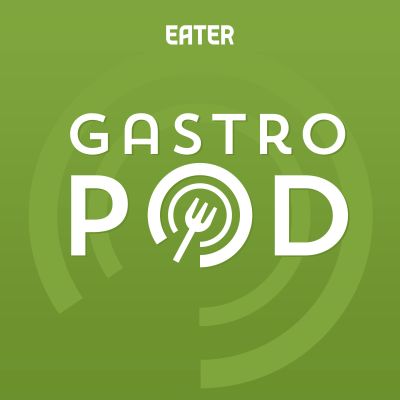Food with a side of science and history. Every other week, co-hosts Cynthia Graber and Nicola Twilley serve up a brand new episode exploring the hidden history and surprising science behind a different food- or farming-related topic, from aquaculture to ancient feasts, from cutlery to chile peppers, and from microbes to Malbec. We interview experts, visit labs, fields, and archaeological digs, and generally have lots of fun while discovering new ways to think about and understand the world through food. Find us online at gastropod.com, follow us on Twitter @gastropodcast, and like us on Facebook at facebook.com/gastropodcast.
https://gastropod.com/
Gesamtlänge aller Episoden: 7 days 14 hours 47 minutes
All You Can Eat: The True Story Behind America's Most Popular Seafood
Americans eat more shrimp than any other seafood: on average, each person in the US gobbles up close to six pounds of the cheap crustaceans every year. We can eat so many of these bug-like shellfish because they’re incredibly inexpensive, making them the stars of all-you-can-eat shrimp buffets and single-digit seafood deals. But we've got bad news: this is one bargain that's too good to be true...
The World Is Your Oyster: How Our Favorite Shellfish Could Save Coastlines Worldwide
If we at Gastropod were asked to name a perfect food, the oyster would be at the top of our list...
Eat This, Not That: The Surprising Science of Personalized Nutrition (encore)
This episode, we've got the exclusive on the preliminary results of the world's largest personalized nutrition experiment...
Bam! How Did Cajun Flavor Take Over the World?
If "Cajun-style" only makes you think of spicy chicken sandwiches and popcorn shrimp, you need to join us in the Big Easy this episode, to meet the real Cajun flavor. Cajun cuisine and its close cousin, Creole, were born out of the unique landscape of the Mississippi River delta, whose bounty was sufficient to support large, complex Indigenous societies, without the need for farming or even social hierarchies, for thousands of years...
Anything's Pastable (Guest Episode)
After Dan’s pasta shape, cascatelli, was launched, people everywhere were cooking with it and sending him photos of what they were making. As exciting as that was, he was disappointed that most folks were only making a handful of well-worn dishes with this new shape. So Dan decided to write a cookbook to show the world that there’s so much more you can and should be putting on all your pasta shapes, cascatelli and beyond! There’s only one problem: he’s never written a recipe in his life...
Can You Patent a Pizza?
Close your eyes and imagine this: a world without stuffed crust pizza. We know!—but that was the dismal state of the Italian flatbread scene before 1985, when Anthony Mongiello, aka The Big Cheese, came up with an innovation that loaded even more cheese onto pizza, while saving crusts nationwide from the trashcan. It was a multi-million dollar idea, Mongiello was sure—if only he could figure out how to protect his intellectual property and license it...
Super Fry: The Fight for the Golden Frite (encore)
Shoestring, waffle, curly, or thick-cut: however you slice it, nearly everyone loves a deep-fried, golden brown piece of potato. But that's where the agreement ends and the battles begin. While Americans call their fries "French," Belgians claim that they, not the French, invented the perfect fry...
Dining at the (Other) Top of the World: Hunger, Fruitcake, and the Race to Reach the South Pole
In contrast to the abundance of the Arctic, in Antarctica, "once you leave the coast, you're basically heading to the moon." Jason Anthony, who spent several summers on the seventh continent, told us that in this desert of ice and stone (where the largest terrestrial animal is a tiny wingless midge), food isn't just important—it's everything...
Dining at the Top of the World: Arctic Adaptation, Abundance, and...Ice Cream
You may feel like it's cold where you live, but in the Arctic, the average temperature is well below freezing all year round. In winter, it's also pitch black for weeks on end—not an ideal environment for growing food. Still, for thousands of years, people in the Arctic have thrived in a landscape that most outsiders would find fatally inhospitable...
Cork Dork: Inside the Weird World of Wine Appreciation (encore)
“There’s the faintest soupçon of asparagus and just a flutter of Edam cheese,” says Paul Giamatti in the movie Sideways. Believe it or not, he's describing pinot noir, not quiche. The world of sommeliers, wine lists, and tasting notes is filled with this kind of language, prices seemingly rising in step with the number of bizarre adjectives. It's tempting to dismiss the whole thing as B.S...
